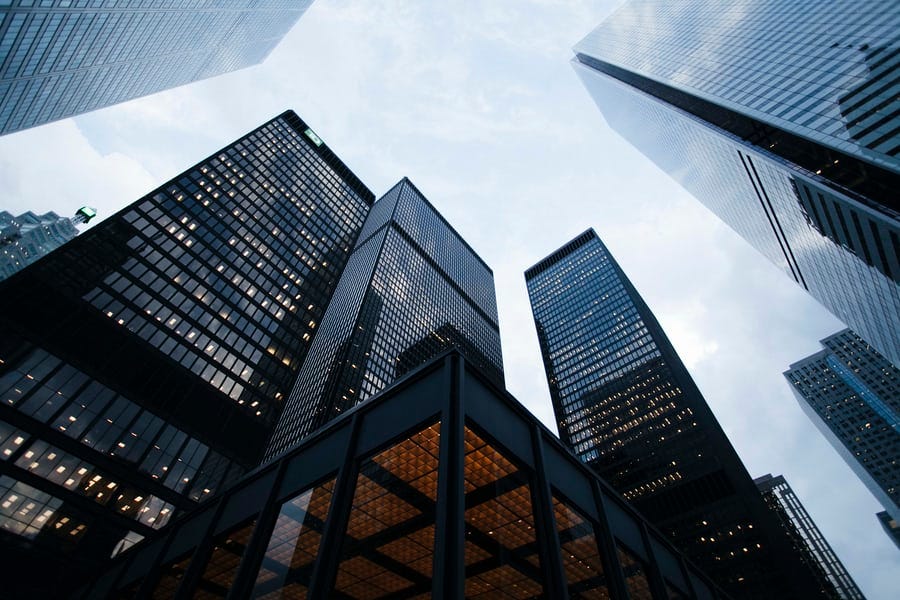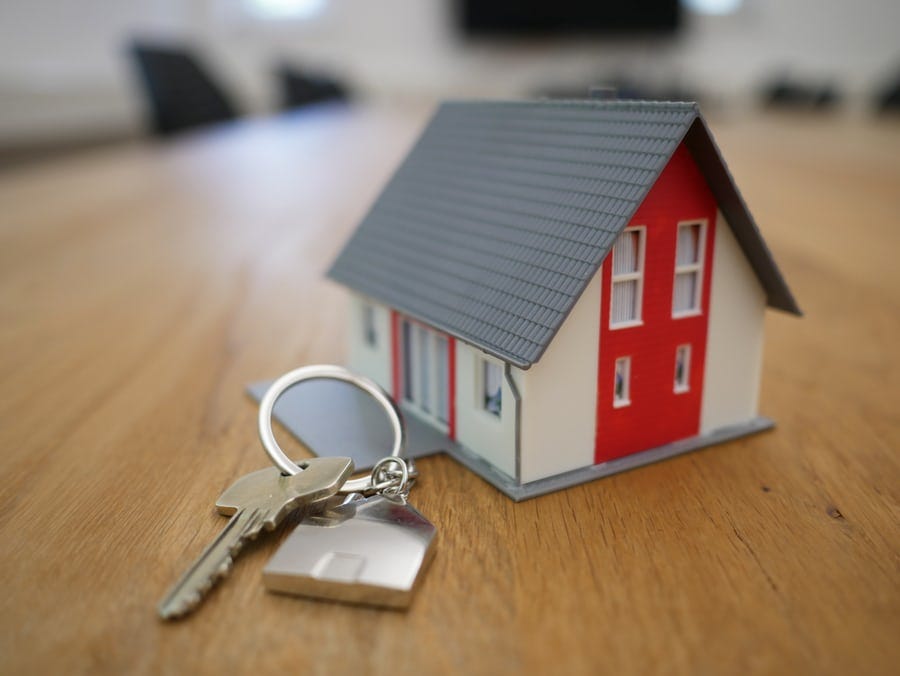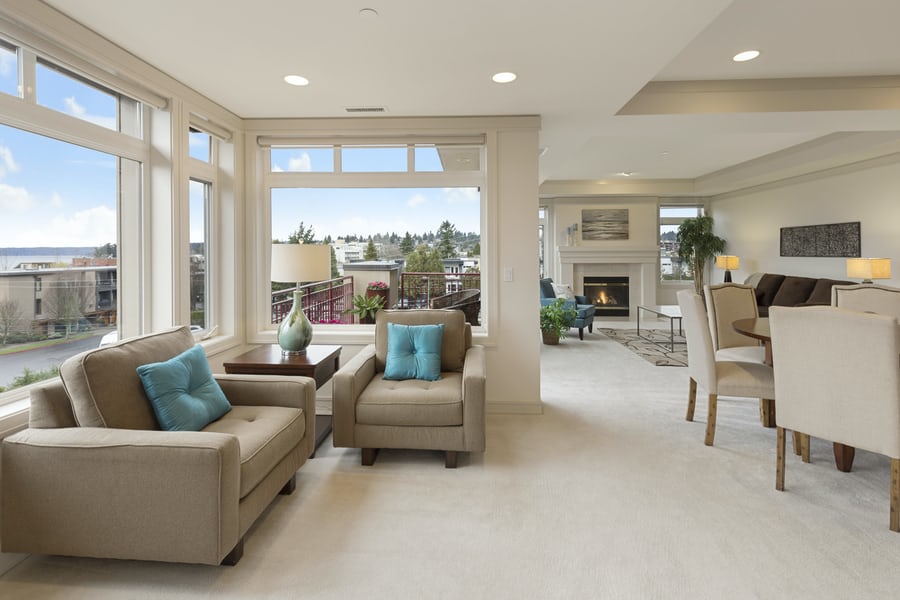With ballooning asset prices and record valuations for all kinds of real estate since the start of the pandemic, home prices have skyrocketed to unforeseen levels pricing out well-established eager buyers.
Through peak and trough, this superior asset class is hailed as one of the safest investments of all time, especially in this tanking market. As long as you don’t finance your home in dogecoin, you’re secured.
Even end-of-year estimates expect the sector to yield around 10–20% despite rising rates since there’s always a buyer willing to snag that non-fungible asset somewhere!
The oldest generation, Baby Boomers who own the most equity in their homes, profited handsomely off of these stellar gains with home equity now up to ~$15T in April 2022, an unprecedented amount of cash in such a short time.
Many first-time Millennial homebuyers who got in at the right time at the right place at the peak of the pandemic, whether it be in the city or in suburbia, are sitting on a gold mine, profiting off of soaring rents this time around as well.
Since the 2008 recession and CDS crisis, homeownership has been rising steadily after more stringent lending constraints and wary cashed-up homeowners flooded the market when prices were still cheap with excess supply from foreclosures. Back then the average home price in the U.S. was $173,200 in 2009, compared with $196,600 in 2008. What a bargain as in March 2020!
Compared to today that number has tripled, not to mention 80%+ of asking prices these past few years have been over by at least $10k and closing takes half the time as eager homebuyers revaluated their lives during lockdown and millions didn’t need to be in close proximity to work anymore.
Although these gains have been incredible for homeowners who bought the dip in February — March 2020 and for those who’ve owned their homes for at least 5 years and have executed some of that capital into the booming market last year as well, this market is so inflated and overheated which is stopping potential future homeowners, many from my generation from locking in the biggest purchase of their lives.

$1M Record
To be clear, you could own a $1m home with an $800k mortgage. Not recommended but it is not uncommon in the states given the average 30-yr fixed-rate mortgage is ~$647,200. Most Americans do not own their homes until the loan(s) expire in 30 years. Don’t be fooled by the higher price gated community residents.
Buying a $1m+ is typical in urban areas such as here in NYC and San Francisco with the average home prices ranging from ~$1.5–2M. It isn’t so glamorous when monthly mortgage rates cost more than possible rent for a larger pad.
It isn’t a badge of honor to buy an investment that is too pricey to afford and these days it isn’t even a consideration anymore for many as a record number of U.S. homes are now worth more than one million. For most of the U.S. outside of coastal cities, at this price, it will buy you 10x more than what you can get for a closet in Manhattan.
Since mortgage rates follow the 10-yr Treasury yield not directly the FFR, these hikes will eventually trickle down into all types of loans from corporate to municipal and will take some time to cool down consumer spending and inflation to allow a Goldilock’s scenario to flourish.
Yet we are already seeing the quickening effects of rate hikes for many as the Treasury yield is above 3% and the average 30-year fixed is above those levels.
Rising mortgage rates create downward pressure on housing demand eliminating marginal buyers and all the froth and speculation that occurred in the housing market these past two years during the pandemic. As a result, this will also lower home prices and alleviate supply. With unemployment at record lows and incomes boosted by inflation along with bonuses, these factors also play an effect on the strength of the housing market. In addition, rising rates also increase rents which is great news for owners such as myself.
Real estate is designed to be an inflationary proof investment as it appreciates over time. It provides utility as a physical tangible investment and unlike investments tied to the stock market, your home can actually be used in real-time as it grows and converted to provide passive rental income, depreciate as it appreciates, and is a defensible asset that is more conservative than traditional equity securities.
Of course, as with any investment, more risk more return, and residences especially those near or on the water may not appreciate as fast due to the erosion of land near saltwater but the rule of thumb is if you don’t plan on holding your stock holdings or real estate portfolio for more than 5 years, it isn’t worth it due to the non-refundable costs, headache, time, and of course, short-term capital gains tax burden.

Hot House
Given that there are a record number of homeowners and trillions of dollars in equity baked into homes across the country driven by wealthier Americans and ambitious foreigner buyers, the housing market seems resilient enough to deal with any correction, possible recession in 2023, or omicron variant surge.
Although fears of a recession are boiling due to negative GDP Q1 results, lower corporate earnings, and a not-so-stellar FOMC track record with previous rate hikes starting in the 1980s, real estate is certainly an asset class I plan on increasing my exposure to as a considered safe haven.
Patience is a virtue here and as illustrated with higher ARM and 15/30 yr fixed mortgage rates, waiting is oftentimes your best bet and will yield you more than you can imagine. If you are a cashed-up buyer, you are the most ideal candidate for a seller right now because you can close within a few days, pay upfront, and finalize the transaction in no time. For the rest of homeowners from possible graduates to middle-aged folks, I would wait a few months to see if prices cool and if this is your first dream property, I suggest taking out an ARM since it is highly unlikely you will live in your first home for 15–30 years.
If you need to buy, it is oftentimes a sign it is not a great time since no one should rush with the most expensive decision of their lives.
Luckily, in the market, you can invest in REITs (Real Estate Investment Trusts) which is real estate equity. These are real estate holding companies that monitor and manage properties across the nation offering diversification. With no tenants to babysit this is a great way to gain exposure but remember, it won’t yield as much as your own tangible property nor be as stable since it is exposed to the forces of the market for less.
Outside of the equity market, real estate crowdfunding through Fundrise, Crowdstreet, or even buying farmland through FarmRise (none are sponsored) are great platforms as well. Obviously, they don’t come with the same bonuses as owning and managing your own property yet this is always another way to take away the stress of tenants, leaky faucets, and the pain of a property while still having exposure to defensible real estate in your portfolio.
Anyone heard of Pacaso (not sponsored), not Picasso? If you’re looking to try out owning a summer and or second home, you can try them out as well. It is a co-ownership platform to learn about the ins and outs of property management and co-own a second residence without the full hassle.
Housing supply has clearly not kept up with eager demand during the pandemic and in sum, 8.2% of real estate on the market is now worth $1m+ or more, 8x the prices 20 years ago!
Single-family homeownership and equity are thicker than ever before as the majority of Americans are wealthier on average since March 2020. On the other hand, billionaires have collectively lost ~$5T this year, down from earning ~$1Bn per day during the roaring 2020–2021 market. The market’s sentiment may have flipped on its head as more expensive borrowing is ahead, yet real estate has continued to charge ahead.

